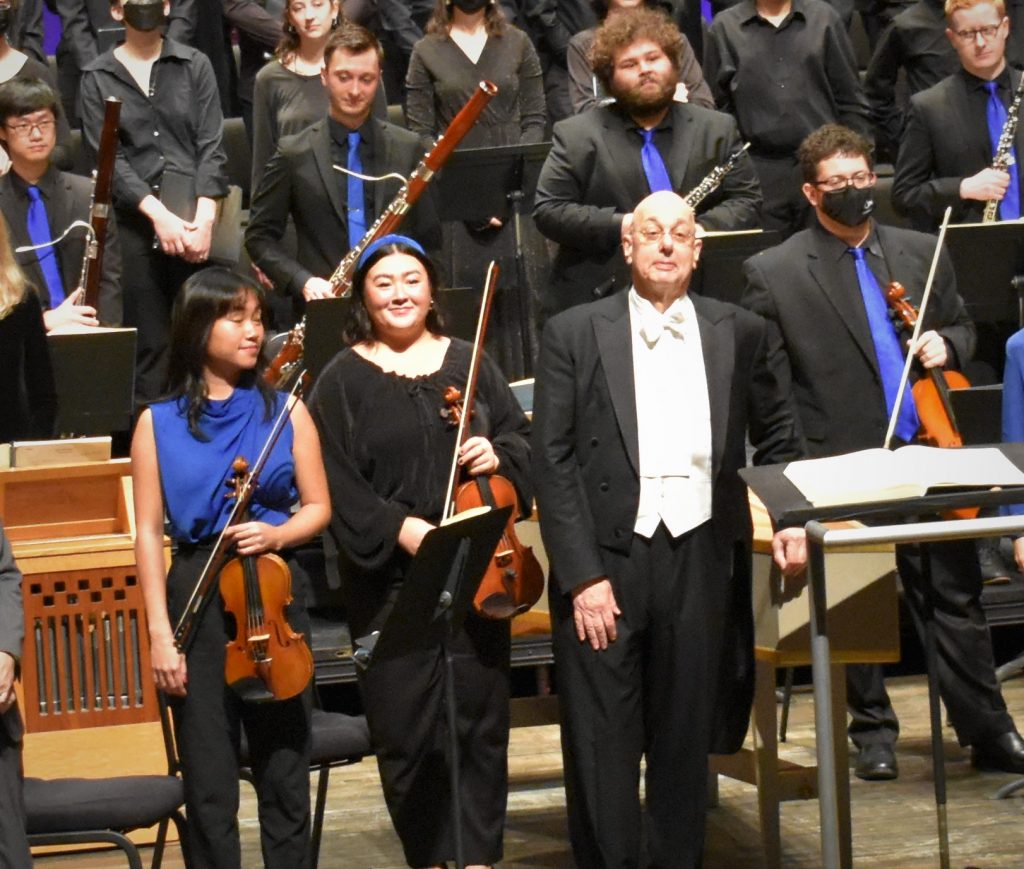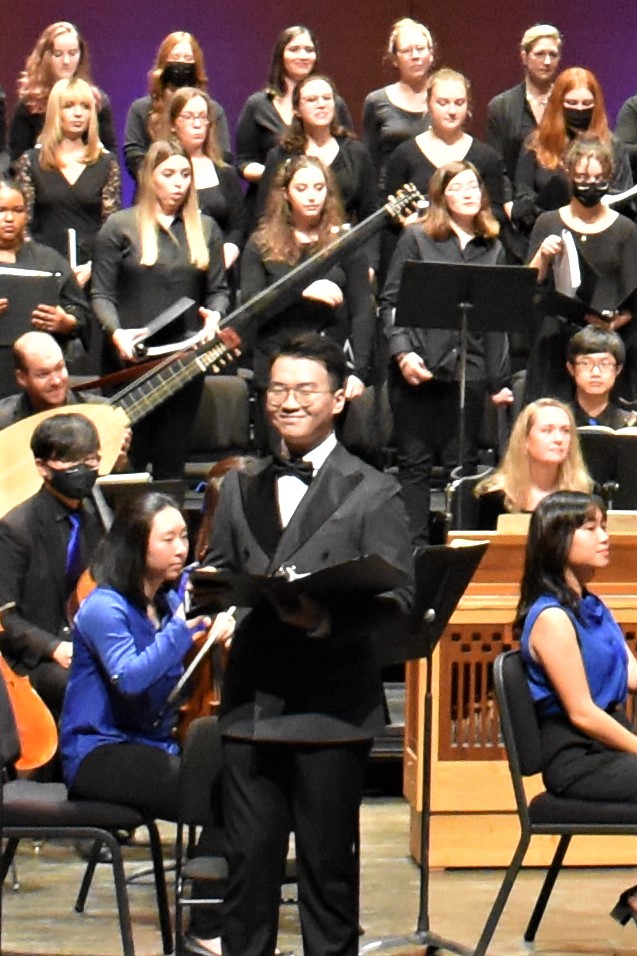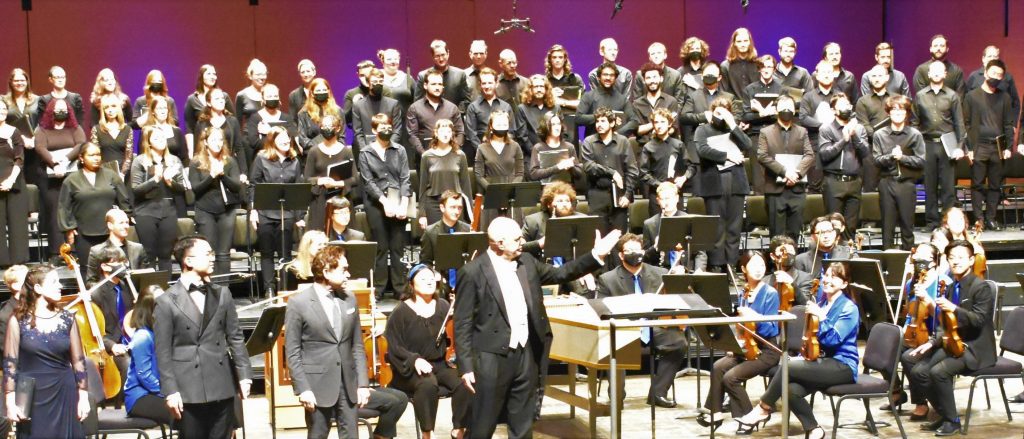
by Kevin T McEneaney
George Frederick Handel’s glorious 1741 oratorio, Messiah, remains a living masterpiece, which means one can hear it every year with renewed pleasure. The Orchestra Now under the baton of Leon Botstein delivered a memorable performance last Saturday night.
Special kudos to trumpeter Samuel Exline (where finesse of restraint is key), JJ Silvey on oboe (such an important role), and Joshua Stauffer on theorbo (a monster baroque guitar) which is not usually included in performances of Messiah.
For outstanding voice special applause: tenor Zihao Liu; soprano Kirby Burgess; baritone Jonathan Lawler; soprano Montana Smith; bass-baritone, Michela Aoun, Katherine Lerner Lee, and a host of other singers, plus the huge chorus of three choirs under direction of James Bagwell.

Overhearing the rehearsal from the street in a Dublin Spring of 1742 Johnathan Swift was not impressed and complained of the “scringing and screaming,” yet the Dublin April 13th performance was a tremendous success. All profits went to charities: a hospital prisoner relief, and an infirmary.
While the populace was not impressed by Messiah in its first London performance on March 23, 1743, King George II was more than impressed. During the “Hallelujah Chorus” the king was so moved he stood up. Subsequent performances have repeated this tradition. From experience, I can attest that something marvelously strange occurs in the brain at this point in the oratorio: transcendent exultation unlike any other enthusiasm from any oratorio or opera.
Either it was too-long an oratorio with singers who could not perform some of the difficult soprano solos, or peoples’ attention was turned to the exciting scents of Spring outdoors, and they did not wish to be confined elbow-to-elbow in a building for three hours.
After the failure of the oratorio, Handel in 1749 donated a new organ to the Foundling Hospital in London. He dedicated the organ on May 1, 1750, with a performance of Messiah; he gave the orphanage exclusive rights to its performance. For the next nine years at the orphanage Handel conducted annual performances around Easter. His generosity not only saved the orphanage, but it established Messiah as a monumental masterpiece.
During the April 6, 1759, performance Handel, now blind, became faint as he directed “The Trumpet Shall Sound” movement. He appeared to recover by the final Amen, yet he went home to bed and never recovered, dying on Good Saturday.

Part of the appeal of Handel’s Messiah resides in its non-liturgical conception. The pathos of the work remains rooted in ethical humanism rather liturgical dignity. The work reflects the ethical ideals of The Enlightenment, yet it is also true that its popularity is due partially to its religious appeal of redemption addressed to a middle-class audience.
The work itself, despite a prose libretto, propels taut, dramatic tension. Yet it is the chorale numbers that create a new aesthetic synthesis by incorporating the finest conceptions and techniques from German cantata, Italian opera and choral tradition, and English anthem choral singing.
The origin of Messiah as a concept has been around for at least three thousand years. The religious reformer Zarathustra decided that tyranny would always be with us, and he could not persuade people to forgo a hope in deliverance, so he sidetracked the coming of a Messiah unto the final days of humanity.

Eventually, the popularity of Messiah lay in its thematic appeal to peace and childlike myth of resurrection at Easter. But it is Handel’s music, its arrangement, the solos, the musicians, and the choral choir that creates a peculiar magic which resonates within one’s skull for a satisfactory amount of time.
To counter the dense stress of the Holiday Season, the performance of this masterpiece—at least in this performance— leaves one with a feeling of resurrection since the stage at Sosnoff appeared to levitate for several minutes at climax.